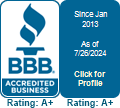Pneumatic conveying systems are commonly used to transport plastics, but they can also transport something else entirely unwanted: streamers and fines. These products of plastic degradation in the system can not only decrease the overall quality of the product, but increase the operational costs of the system over time as well. Thankfully, there are ways to avoid, or at the very least reduce, the formation of fines and streamers.
How Streamers and Fines are Formed
Streamers and fines are formed when plastic pellets slide along the inner surface of the pipes and pneumatic conveying elbows. Friction creates heat that melts the pellets and leaves behind a polymer film inside the line. The film eventually tears off in strips, causing angel hair (fine, small strips) and streamers (thick, long ribbons) to fill the line. Fines (or fine particles, also known as dust) are created when the pellets suddenly crash into other pellets or sharp bends within an elbow, causing tiny fragments to break off.
Preventative Measures
One way to prevent streamers and fines is through a custom pneumatic conveying system specifically designed for plastics. Such a system can control the velocity and temperature of the plastics, preventing them from reaching levels of heat and friction that cause streamers and angel hair. This can be accomplished by keeping the air inside the system cool, around 86° Fahrenheit, and by keeping the pipelines away from outside heat sources.
Another option is to use a roughened or shot-peened pipe in conjunction with dilute phase conveying. This can stop the plastic from running against the pipes and instead, the plastic will bounce off of the roughened surface. Short radius bends can also be used to prevent the plastic from sliding along its length and melting. However, keep in mind that while this will reduce streamers, it will increase the number of fines in the line.
Additionally, angel hair screens can be installed to prevent streamers from clogging the system. These screens capture any angel hair that forms and prevent it from accumulating and causing blockages.
Talk to Our Experts
There are several ways to avoid streamers and fines in a pneumatic conveying system, including using a custom system specifically designed for plastics, keeping the air inside the system cool, using roughened or shot-peened pipes in conjunction with short radius bends, and installing angel hair screens.
It is important to keep in mind that each method may have its own unique trade-offs, making it important to consider your specific needs before implementing a solution.
At Progressive Products, our team of experts are happy to listen to your challenges and help you find a solution that is tailored to you and your system. Contact us today and let's get started.


